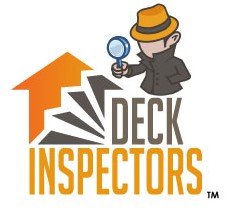Planning for Privacy on Exterior Elevated Elements: Ideas for Screening and Shade
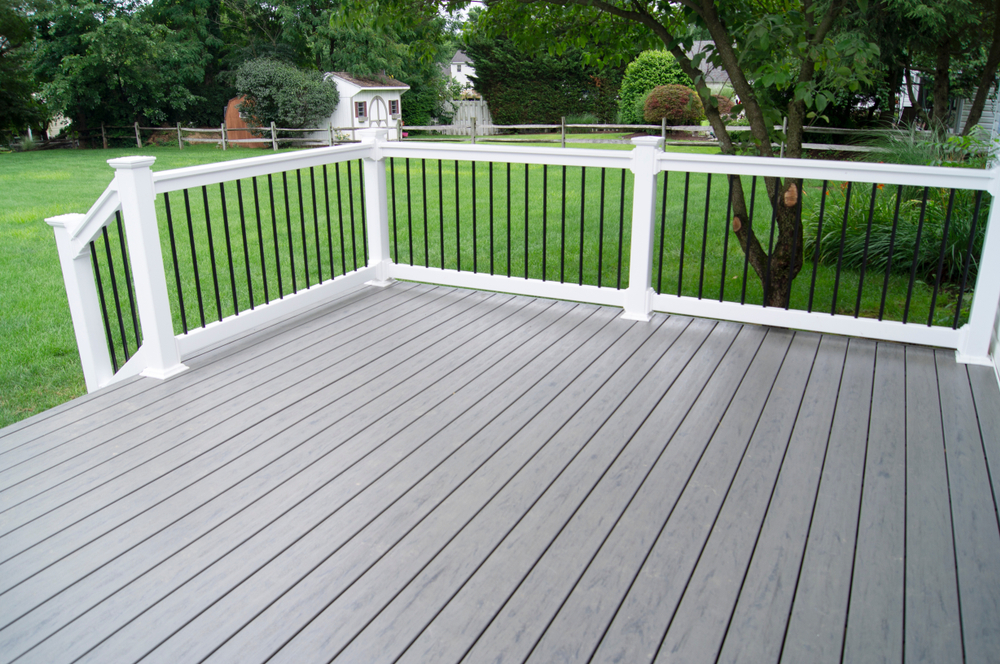
In Southern California, maximizing outdoor living spaces is a priority for property owners. Especially for exterior elevated elements like decks, balconies, and terraces. However, along with creating inviting outdoor spaces, ensuring privacy and shade is essential for comfort and enjoyment. This article explores creative ideas for screening and shade solutions to enhance privacy, allowing property owners to maximize their outdoor areas. Enhancing Privacy with Screening Options for Exterior Elevated Elements Exterior elevated elements offer fantastic views and fresh air but often lack privacy. Fortunately, various screening options are available to create secluded and intimate outdoor spaces. Natural Greenery and Plantings Incorporating greenery and plantings is a versatile and aesthetically pleasing way to add privacy to exterior elevated elements. Tall shrubs, climbing vines, and potted plants can be strategically placed to create natural barriers and screens. Property owners can opt for fast-growing evergreen plants like bamboo, arborvitae, or ornamental grasses, which provide year-round privacy and greenery. Additionally, installing planter boxes or trellises allows for vertical gardening, maximizing space while enhancing privacy and visual appeal. Decorative Privacy Screens Decorative privacy screens offer a stylish and customizable solution for enhancing privacy on exterior elevated elements. Available in various materials such as wood, metal, and composite, these screens can be installed as freestanding panels or attached directly to railing systems. Property owners can choose designs, patterns, and finishes to complement their outdoor decor and architectural style. Whether opting for intricately carved wooden screens or sleek metal panels, decorative privacy screens add an element of sophistication while providing privacy from neighboring properties or public spaces. Providing Shade Solutions for Comfort and Protection In addition to privacy, providing shade is crucial for creating comfortable outdoor spaces on exterior elevated elements. Especially during the scorching Southern California summers. Retractable Awnings and Canopies Retractable awnings and canopies offer flexible shade solutions. These versatile structures can be extended or retracted as needed, allowing property owners to adjust the amount of shade based on weather conditions and personal preferences. Modern retractable awnings and canopies are available in various styles, colors, and materials to suit different architectural designs and outdoor aesthetics. Whether opting for motorized systems for added convenience or manual operation for cost-effectiveness, retractable awnings, and canopies provide instant shade and protection from the sun’s harsh rays. Shade Sails and Umbrellas Shade sails and umbrellas are popular shade solutions for exterior elevated elements due to their versatility and affordability. These lightweight and portable structures can be easily installed and adjusted to provide shade where needed. Shade sails come in various shapes and sizes, allowing property owners to create custom configurations to cover specific areas. Umbrellas offer a more compact and portable option for smaller decks or balconies. Shade sails and umbrellas provide effective sun protection while adding color and style to outdoor spaces. Exterior Elevated Elements Wrap-Up Creating private and shaded outdoor areas on exterior elevated elements is essential for maximizing comfort and enjoyment in Southern California’s climate. Property owners can transform their decks, balconies, and terraces into secluded retreats where they can relax, entertain, and connect with nature by exploring creative screening and shade solutions. Whether opting for natural greenery, decorative screens, retractable awnings, or shade sails, investing in privacy and shade enhancements enhances the value and livability of outdoor spaces. Get in contact with Deck Inspectors of Southern California by clicking here! Deck Inspectors for Southern California is happy to offer our services in Los Angeles, Orange County as well as San Diego and all Southern California surrounding areas like: Glendale, Pasadena, Burbank, Santa Monica, Anaheim, Temecula, Vista, Escondido, Carlsbad, and El Cajon
From Risk to Resilience: How SB 721 Inspections Improve Property Values
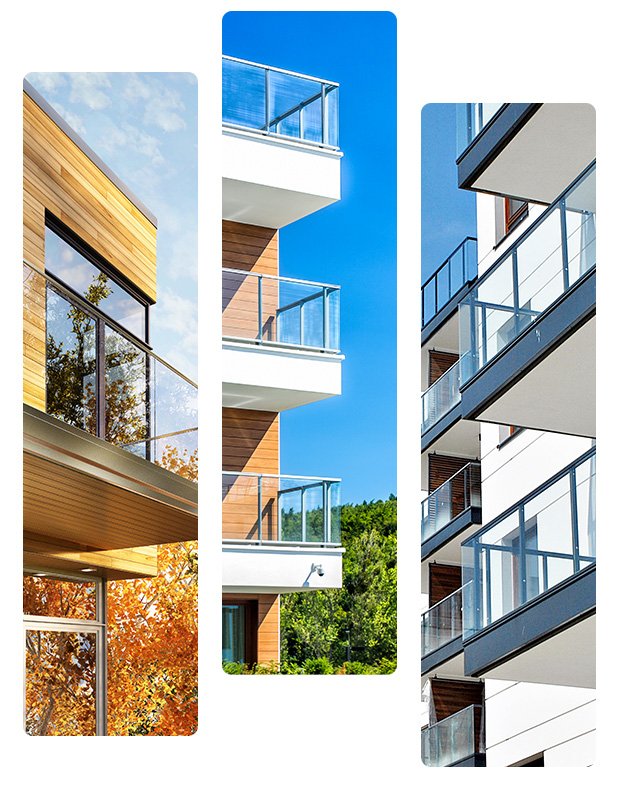
In Southern California, property owners face the dual challenge of maintaining structural safety and maximizing property values. SB 721 mandates regular inspections of balconies and other elevated structures in multi-family residential buildings, aiming to mitigate safety risks and ensure structural integrity. This article explores how SB 721 inspections mitigate risks and enhance property values, emphasizing the importance of proactive inspection practices. Enhancing Property Values through SB 721 Inspections SB 721 inspections offer more than just compliance with regulatory requirements; they are a proactive approach to safeguarding property values and enhancing overall asset resilience. Identifying and Mitigating Safety Risks One of the primary objectives of SB 721 inspections is to identify potential safety hazards. By conducting thorough inspections, property owners can proactively address issues such as deterioration, corrosion, or structural weaknesses, mitigating safety risks before they escalate. Property owners demonstrate a commitment to tenant safety and building integrity by identifying and rectifying safety concerns. This proactive approach minimizes liability and enhances the property’s perceived value among tenants, prospective buyers, and insurers. Boosting Tenant Satisfaction and Retention Safe and well-maintained balconies and outdoor spaces are key amenities that contribute to tenant satisfaction and retention. Inspections ensure these amenities remain in optimal condition, providing tenants peace of mind and enhancing their overall living experience. Properties with a reputation for safety and quality amenities are more attractive to tenants. This leads to higher occupancy rates and reduced turnover. Additionally, satisfied tenants are more likely to renew their leases, providing property owners stability and consistent rental income. Maximizing Property Values with SB 721 Compliance Compliance with SB 721 inspections mitigates risks and enhances property values by instilling confidence in the safety and longevity of the building. Inspections safeguard property values and promote resilience in Southern California’s real estate market. Property owners can proactively address safety risks and ensure structural integrity to enhance tenant satisfaction, attract prospective buyers, and mitigate potential liabilities. As regulations evolve, embracing SB 721 compliance as a strategic investment in property value is essential for long-term success. Get in contact with Deck Inspectors of Southern California by clicking here! Deck Inspectors for Southern California is happy to offer our services in Los Angeles, Orange County as well as San Diego and all Southern California surrounding areas like: Glendale, Pasadena, Burbank, Santa Monica, Anaheim, Temecula, Vista, Escondido, Carlsbad, and El Cajon
Deck Safety Month & SB 326 with Deck Inspectors of Southern California
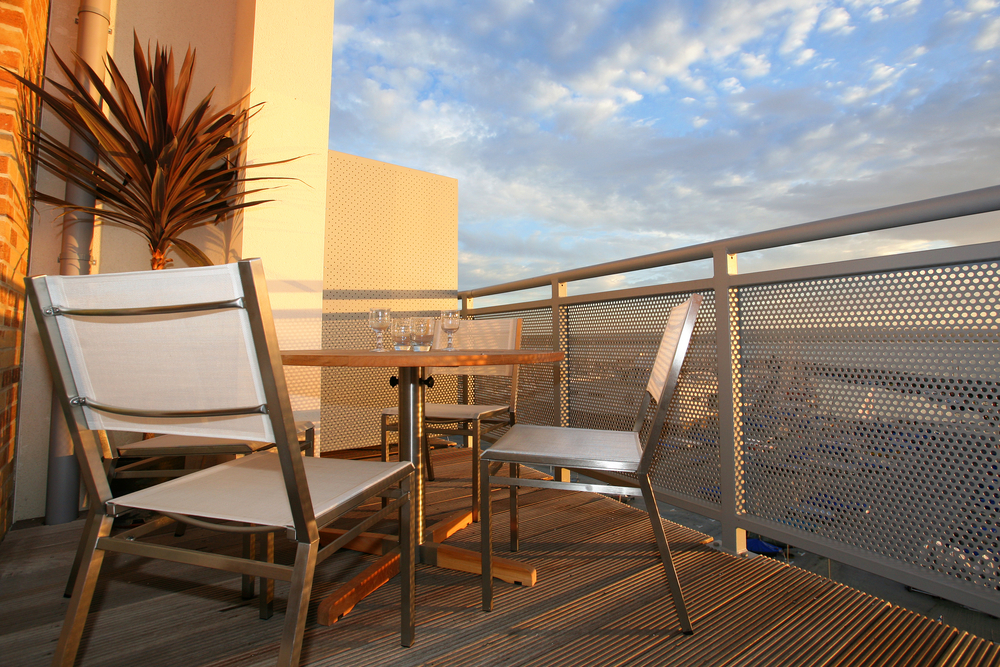
As the sunny days of summer approach, Southern California residents are gearing up to enjoy the outdoor living spaces that make California living so desirable. However, amidst the excitement of barbecues, gatherings, and relaxation, it’s crucial not to overlook the safety of one of the most popular outdoor features: decks. May is recognized as Deck Safety Month, when homeowners are encouraged to prioritize the SB 326 inspection and maintenance of their decks to ensure they remain safe throughout the year. This awareness is particularly critical in San Diego, where decks are a common extension of living spaces. Understanding SB 326: A Legislative Commitment to Safety Underpinning the importance of deck safety in California is Senate Bill 326 (SB 326), a legislative measure to enhance the safety of elevated structures, particularly balconies and decks, in multi-family residential buildings. Introduced in response to several high-profile deck collapses across the state, SB 326 mandates regular inspections of these structures to identify and address potential hazards before they escalate into accidents. For deck owners, compliance with SB 326 is not just a legal obligation but a moral imperative to safeguard the well-being of residents and guests. The Role of Deck Inspectors in Southern California In San Diego and throughout Southern California, deck inspectors play a crucial role in upholding the standards set forth by SB 326. These professionals are trained to conduct thorough assessments of deck structures, evaluating various factors such as structural integrity, load-bearing capacity, railing stability, and adherence to building codes. By enlisting the services of a reputable deck inspection company like Deck Inspectors of Southern California, property owners can ensure compliance with SB 326 while gaining peace of mind, knowing that their outdoor spaces are safe for use. Comprehensive SB 326 Inspections for Peace of Mind With SB 326 emphasizing the importance of regular inspections for deck safety, homeowners in San Diego are turning to deck inspection companies like Deck Inspectors of Southern California for comprehensive assessments. Unlike cursory visual inspections, which may overlook underlying issues, professional deck inspections delve deep into the structural integrity of the entire system. From the foundation to the decking material, every component is scrutinized to identify signs of wear, damage, or structural compromise that could pose a risk to occupants. Addressing Potential Hazards Proactively One of the primary objectives of SB 326 is to identify and address potential hazards before they escalate into safety incidents. Through proactive inspections, deck inspectors can detect subtle warning signs indicating impending structural failure, such as rusting hardware, deteriorating wood, or sagging support beams. By intervening early and recommending necessary repairs or reinforcements, deck inspection companies help mitigate risks and prevent accidents, saving lives and preserving property. Educating Homeowners on Safety Practices In addition to conducting inspections, deck inspectors also play a vital role in educating homeowners on safety practices and maintenance guidelines to prolong the lifespan of their decks. By raising awareness about common issues such as water damage, insect infestation, and improper fastening, inspectors empower property owners to take proactive measures to preserve the structural integrity of their outdoor spaces. Through informational resources, consultations, and personalized recommendations, deck inspection companies foster a culture of safety and responsibility among homeowners in San Diego and beyond. SB 326 Conclusion As Deck Safety Month highlights the importance of outdoor safety, the implementation of SB 326 underscores California’s commitment to protecting residents from preventable accidents. In San Diego, where decks are an integral part of daily living, deck inspection companies like Deck Inspectors of Southern California are invaluable in ensuring compliance with regulatory standards and maintaining the structural integrity of outdoor spaces. By prioritizing safety through regular inspections and proactive maintenance, homeowners can confidently enjoy their decks, knowing that they have taken the necessary steps to safeguard themselves and their loved ones. Learn about Deck Inspectors of Southern California by clicking here! Deck Inspectors for Southern California is happy to offer our services in Los Angeles, Orange County as well as San Diego and all Southern California surrounding areas like: Glendale, Pasadena, Burbank, Santa Monica, Anaheim, Temecula, Vista, Escondido, Carlsbad, and El Cajon
Compliance Challenges: Overcoming Obstacles in Implementing SB 326

Complying with SB 326, also known as the Balcony and Elevated Walkway Inspection Law, is essential for deck inspection companies in Southern California to ensure the safety and integrity of multifamily dwellings. However, navigating the complexities of SB 326 requirements can pose significant challenges for inspection companies striving to meet regulatory standards. From interpreting complex regulations to managing resource constraints, here are some key obstacles deck inspection companies may encounter and strategies for overcoming them. Interpreting Complex SB 326 Regulations One of the primary challenges deck inspection companies face when implementing SB 326 is interpreting the complex regulations outlined in the legislation. The law’s language may be dense and technical, making it difficult to understand the specific requirements for conducting inspections and submitting reports. To overcome this obstacle, deck inspection companies should invest time and resources in thoroughly reviewing and understanding the provisions of SB 326. This may involve consulting legal experts or industry professionals familiar with the intricacies of deck safety regulations. By understanding the law comprehensively, inspection companies can ensure compliance and avoid potential misunderstandings or misinterpretations. Navigating Conflicting Requirements Another challenge deck inspection companies may encounter when implementing SB 326 is navigating conflicting requirements between the law and other regulatory standards or industry guidelines. For example, there may be discrepancies between SB 326 requirements and existing building codes or inspection protocols. To address this challenge, inspection companies should thoroughly review all relevant regulations and standards that apply to deck inspections. By identifying areas of overlap or inconsistency, companies can develop comprehensive compliance strategies that align with the law’s overarching objectives while also meeting other regulatory obligations. Collaboration with regulatory agencies, industry organizations, and legal experts can help clarify ambiguous requirements and ensure compliance with all applicable standards. Managing Resource Constraints Resource constraints, such as limited staffing, time, and financial resources, can present significant challenges for deck inspection companies striving to comply with the law. Conducting large-scale inspections and submitting comprehensive reports within designated timeframes may require substantial investment in manpower and technology. Inspection companies should prioritize efficiency and optimization in their operations to overcome resource constraints. This may involve leveraging technology solutions such as inspection software or mobile applications to streamline data collection, analysis, and reporting processes. Additionally, companies can explore partnerships or collaborations with other stakeholders, such as property management firms or homeowners associations, to share resources and distribute workload more effectively. SB 326 Conclusion While implementing SB 326 presents various challenges for deck inspection companies in Southern California, overcoming these obstacles is essential to ensure compliance with regulatory standards and promote deck safety in multifamily dwellings. By investing in understanding complex regulations, navigating conflicting requirements, and managing resource constraints effectively, inspection companies can successfully meet the objectives of the law and contribute to creating safer living environments for residents and visitors alike. Ultimately, a proactive and strategic approach to compliance is key to overcoming challenges and ensuring the integrity of deck inspections by SB 326. Learn more about Deck Insecotrs of Southern California by clicking here! Deck Inspectors for Southern California is happy to offer our services in Los Angeles, Orange County as well as San Diego and all Southern California surrounding areas like: Glendale, Pasadena, Burbank, Santa Monica, Anaheim, Temecula, Vista, Escondido, Carlsbad, and El Cajon
SB 721: A Legislative Response to Deck Safety Concerns

In response to alarming incidents involving deck collapses and structural failures, California lawmakers introduced SB 721, also known as the Deck Inspection Bill, to address safety concerns surrounding elevated exterior elements of multifamily dwellings. This legislation represents a proactive approach to enhancing deck safety and preventing tragedies by mandating regular inspections and maintenance. Background and Legislative Intent The introduction of SB 721 was prompted by several high-profile incidents, including the tragic balcony collapse in Berkeley in 2015, which resulted in multiple fatalities and injuries. These incidents underscored the urgent need for stricter regulations and oversight of deck safety in California, particularly in multifamily housing units where elevated exterior elements pose significant risks to residents and visitors. SB 721 was designed to establish a comprehensive framework for inspecting and maintaining decks, balconies, and other elevated exterior elements of multifamily dwellings. The legislative intent behind SB 721 was to prevent accidents, injuries, and fatalities by identifying potential safety hazards through regular inspections and implementing timely remediation measures to ensure compliance with safety standards. Lawmakers’ Objectives SB 721’s primary objective was to enhance deck safety and minimize the risk of accidents and liabilities associated with structural failures. By mandating regular inspections and maintenance of decks in multifamily dwellings, lawmakers sought to identify and address potential safety hazards before they escalated into serious incidents. Furthermore, SB 721 aimed to establish accountability and responsibility among property owners, managers, and homeowners associations for ensuring the safety and integrity of elevated exterior elements. By requiring proactive measures such as inspections, maintenance, and timely repairs, lawmakers aimed to create a culture of safety and compliance to protect the well-being of residents and visitors. Enhancing Deck Safety in California with SB 721 SB 721 represents a significant step in enhancing deck safety in California and preventing tragedies like the Berkeley balcony collapse. By requiring regular inspections and maintenance of decks in multifamily dwellings, SB 721 aims to identify and mitigate potential safety hazards before they pose a risk to occupants. Furthermore, the bill promotes transparency and accountability by requiring property owners to disclose inspection reports and any identified safety hazards to tenants and potential buyers. This transparency empowers residents and homeowners to make informed decisions about their safety and proactively address concerns. SB 721 Conclusion SB 721 reflects a legislative response to deck safety concerns in California, prompted by tragic incidents and the need for stricter regulations to protect residents and visitors. Mandating regular inspections and maintenance of decks in multifamily dwellings, the bill aims to prevent accidents, injuries, and fatalities by proactively identifying and addressing potential safety hazards. Moving forward, compliance with the bill is essential for property owners, managers, and homeowners associations to ensure the safety and integrity of elevated exterior elements. By adhering to the requirements of SB 721 and prioritizing deck safety, stakeholders can create safer living environments for residents and visitors in California’s multifamily dwellings. Click here to learn more about Deck Inspectors of Southern California! Deck Inspectors for Southern California is happy to offer our services in Los Angeles, Orange County as well as San Diego and all Southern California surrounding areas like: Glendale, Pasadena, Burbank, Santa Monica, Anaheim, Temecula, Vista, Escondido, Carlsbad, and El Cajon
SB 326 Inspection and Insurance: Implications for Deck Inspection Companies

SB 326, the Balcony and Elevated Walkway Inspection Law enhances safety standards for elevated exterior elements of multifamily dwellings. SB 326 implications extend to insurance coverage for deck inspection companies in Southern California. Understanding SB 326 Inspection Requirements The law mandates regular balconies and elevated walkway inspections in multifamily dwellings to ensure safety standards and prevent accidents. Qualified inspectors must conduct these inspections at specified intervals and submit reports to the HOA Board of Directors or as required by local authorities, Building Departments and Municipaltiies. Compliance with SB 326 Inspection requirements is essential for property owners, managers, and homeowners associations. Compliance will mitigate the risk of accidents, injuries, and liabilities associated with structural failures of balconies and elevated walkways. Insurance Implications for Deck Inspection Companies For deck inspection companies in Southern California, compliance with SB 326 Inspection requirements can significantly affect insurance coverage. Here are some key considerations: Premiums and Coverage Limits: The law may impact insurance premiums for deck inspection companies as insurers assess the risk associated with conducting inspections on balconies and elevated walkways. Companies that demonstrate adherence to safety standards and best practices may be eligible for lower premiums. In comparison, those with a history of non-compliance or safety violations may face higher premiums or coverage limitations. Liability Considerations: SB 326 emphasizes accountability and responsibility for ensuring the safety and integrity of balconies and elevated walkways. As such, companies must exercise due diligence in conducting thorough inspections, accurately documenting findings, and recommending appropriate remediation measures. Failure to adhere to requirements could expose inspectors to liability for negligence or non-compliance. This can potentially lead to lawsuits or claims against their insurance policies. Navigating Insurance-Related Aspects Effectively To navigate insurance-related aspects effectively, deck inspection companies in Southern California should consider the following strategies: Risk Management Practices: Implement robust risk management practices to minimize the likelihood of accidents or claims. This may include investing in comprehensive training for inspectors, adopting standardized inspection protocols, and maintaining detailed records of inspections and findings. Communication with Insurers: Maintain open communication with insurers to ensure they understand the company’s commitment to safety and compliance with SB 326 requirements. Provide insurers with relevant documentation, such as inspection reports and certifications, to demonstrate adherence to regulatory standards and mitigate perceived risks. Review Insurance Policies: Regularly review insurance policies to ensure they provide adequate coverage for potential liabilities arising from deck inspections. Consult with insurance professionals or legal experts to assess related coverage limits, exclusions, and endorsements. Conclusion SB 326 Inspection requirements have far-reaching implications for deck inspection companies in Southern California. Particularly concerning insurance coverage and liability considerations. By prioritizing compliance with SB 326, implementing risk management practices, maintaining open communication with insurers, and reviewing insurance policies regularly, deck inspection companies can effectively navigate the insurance-related aspects of conducting inspections on balconies and elevated walkways. Ultimately, adherence to safety standards and regulatory requirements is essential for protecting the integrity of multifamily dwellings and the interests of deck inspection companies operating in the region. Learn more about Deck Inspectors of Southern California by clicking here! Deck Inspectors for Southern California is happy to offer our services in Los Angeles, Orange County as well as San Diego and all Southern California surrounding areas like: Glendale, Pasadena, Burbank, Santa Monica, Anaheim, Temecula, Vista, Escondido, Carlsbad, and El Cajon
SB 721 Inspection: Evolving Regulations and Future Outlook
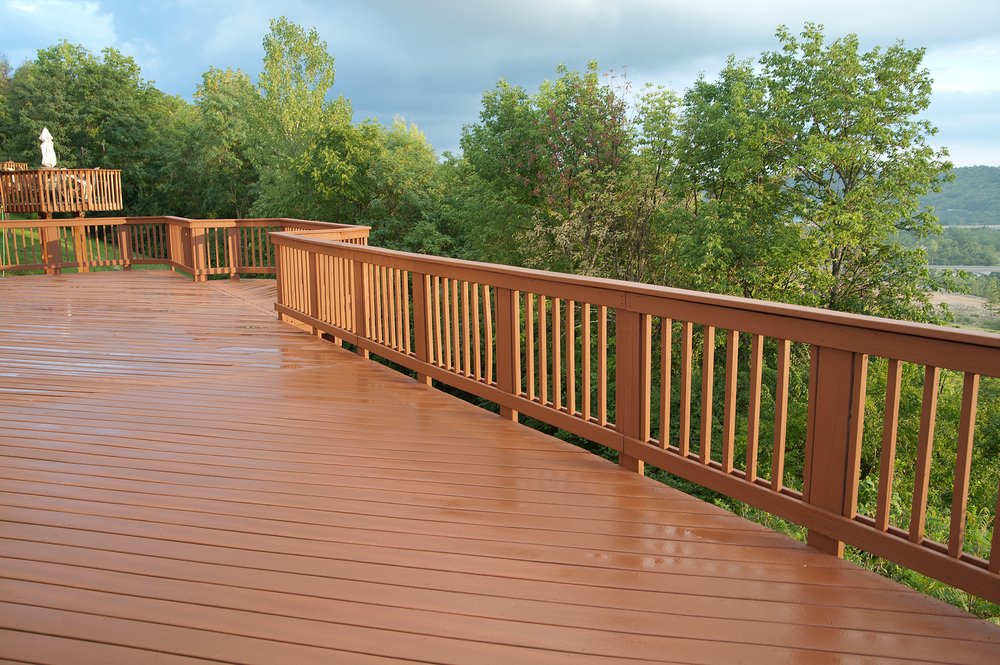
In the wake of tragic incidents involving deck collapses and structural failures, California implemented SB 721, also known as the Deck Inspection Bill, to mandate regular inspections of decks, balconies, and other elevated exterior elements of multifamily dwellings. This legislation represents a significant step towards ensuring the safety of residents and visitors in multifamily housing units across the state. However, as the regulatory landscape evolves, deck inspection companies in Southern California must stay abreast of potential future developments and emerging safety concerns. The Impact of SB 721 Inspection SB 721 Inspection has profoundly impacted the deck inspection industry in Southern California. It has heightened awareness of the importance of regular inspections for deck safety and prompted property owners and managers to prioritize maintenance and repairs to comply with regulatory requirements. Qualified deck inspectors are crucial in conducting thorough assessments, identifying safety hazards, and recommending remediation measures to ensure compliance with SB 721. Potential Future Developments Several potential developments could shape deck inspection companies’ regulatory landscape beyond SB 721. These developments may include: Expansion of Regulations: There is a possibility of expanding SB 721-like regulations to cover additional types of residential and commercial properties beyond multifamily dwellings. This expansion could include single-family homes, commercial buildings, and public structures with elevated exterior elements, further enhancing deck safety across various sectors. Enhanced Training and Certification Requirements: As the demand for qualified deck inspectors grows, there may be efforts to establish standardized training and certification programs to ensure consistency and competency within the industry. Enhanced training requirements could help raise the bar for deck inspection practices and improve public confidence in the safety of inspected structures. Integration of Technology: Integrating technology such as drones, artificial intelligence, and digital imaging tools may revolutionize deck inspection, enabling more efficient and comprehensive assessments. Advanced technology solutions could streamline data collection, analysis, and reporting, making deck inspections faster, more accurate, and cost-effective. Focus on Sustainability and Environmental Impact: With increasing awareness of environmental sustainability, there may be a greater emphasis on eco-friendly deck materials and construction practices. Future regulations could incentivize using sustainable materials, such as recycled plastics or responsibly sourced wood, to minimize the environmental impact of deck construction and maintenance. Preparing for the Future As the regulatory landscape for deck inspection companies continues to evolve, industry professionals must stay proactive and adaptable. By staying informed about ongoing legislative initiatives, industry trends, and emerging safety concerns, deck inspection companies can position themselves as leaders in the field and provide valuable expertise to property owners and managers. Furthermore, investing in ongoing training and professional development, embracing technological advancements, and prioritizing environmental sustainability can help deck inspection companies navigate future regulatory changes and ensure continued success in a rapidly evolving industry landscape. In conclusion, SB 721 Inspection has significantly influenced deck safety regulations in Southern California, prompting increased scrutiny and compliance efforts. However, the future outlook for deck inspection companies will likely involve further regulatory developments, enhanced training requirements, technological integration, and a focus on sustainability. By staying proactive and adaptable, deck inspection companies can continue to play a vital role in ensuring the safety and integrity of elevated exterior elements in multifamily dwellings and beyond. Click here to learn more about Deck Inspectors of California! Deck Inspectors for Southern California is happy to offer our services in Los Angeles, Orange County as well as San Diego and all Southern California surrounding areas like: Glendale, Pasadena, Burbank, Santa Monica, Anaheim, Temecula, Vista, Escondido, Carlsbad, and El Cajon
How to choose the right deck materials for your multifamily dwelling unit
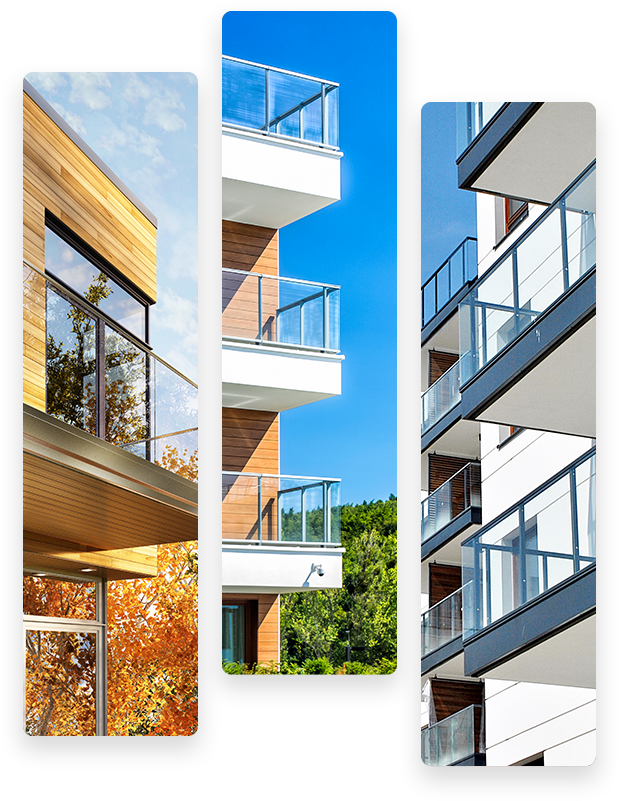
Living in a multifamily dwelling unit in Southern California often comes with the luxury of outdoor living spaces like decks and balconies. However, ensuring these spaces are safe, durable, and aesthetically pleasing requires careful consideration of the materials used. With mandatory inspections for multifamily dwelling unit decks in place, selecting the right deck materials is more important than ever. Here’s a comprehensive guide to help you make informed decisions when choosing materials for your multifamily dwelling unit deck. Understanding the Importance of Multifamily Dwelling Unit Decks Multifamily dwelling unit decks serve as extensions of living spaces, providing residents with areas for relaxation, entertainment, and socializing. However, these outdoor spaces are subject to wear and tear, weather exposure, and structural concerns. With mandatory inspections in place for multifamily dwelling unit decks, selecting the right materials is crucial to ensure compliance with regulations and maintain the safety and integrity of these spaces. Factors to Consider When Choosing Deck Materials Durability and Maintenance One of the primary considerations when choosing deck materials for multifamily dwelling units is durability and maintenance requirements. Opt for materials that can withstand constant use, exposure to sunlight, moisture, and foot traffic without deteriorating quickly. Low-maintenance options like composite or PVC decking are resistant to rot, warping, and insect damage, making them ideal for multifamily dwelling decks. Safety and Compliance Compliance with building codes and safety standards is essential for multifamily dwelling unit decks, especially in light of mandatory inspections. Choose materials that meet or exceed safety requirements, such as fire-resistant decking or slip-resistant surfaces. Ensuring compliance with regulations promotes safety and minimizes the risk of liabilities for property owners. Aesthetic Appeal and Design Flexibility Consider the aesthetic appeal and design flexibility of different deck materials when making your selection. Multifamily dwelling unit decks contribute to the property’s overall curb appeal and visual appeal, so choose materials that complement the architectural style and enhance the outdoor living experience for residents. Wood, composite decking, or decorative concrete offer various colors, textures, and finishes to suit different design preferences. Environmental Impact Evaluate the deck materials’ environmental impact, considering sustainability, recyclability, and eco-friendly manufacturing processes. To minimize environmental footprint, choose materials sourced from responsibly managed forests or made from recycled materials. Sustainable options like reclaimed wood or composite decking made from recycled plastics can help reduce the ecological impact of multifamily dwelling unit decks. Cost Considerations Assess the cost-effectiveness of different deck materials, considering the initial purchase price and long-term maintenance and replacement costs. While some materials may have a higher upfront cost, they may require less maintenance and last longer, ultimately providing better value over time. Consider your budget constraints and long-term investment goals when selecting deck materials for multifamily dwelling units. Installation and Warranty Lastly, consider the ease of installation and warranty coverage offered by deck materials and manufacturers. Choose materials that are easy to install and come with comprehensive warranty coverage to protect against defects or premature wear. Additionally, consider hiring experienced contractors familiar with the installation requirements of the chosen materials to ensure a seamless and professional installation process. In conclusion, choosing the right deck materials for multifamily dwelling units requires careful consideration of durability, safety, aesthetic appeal, environmental impact, cost-effectiveness, and installation requirements. By selecting materials that meet property owners’ and residents’ specific needs and preferences, you can create safe, durable, and visually appealing outdoor spaces that enhance the overall living experience in multifamily dwelling units. Learn more about Deck Inspectors of Southern California by clicking here! Deck Inspectors for Southern California is happy to offer our services in Los Angeles, Orange County as well as San Diego and all Southern California surrounding areas like: Glendale, Pasadena, Burbank, Santa Monica, Anaheim, Temecula, Vista, Escondido, Carlsbad, and El Cajon
What to do if your deck is found to be unsafe by qualified deck inspectors | California
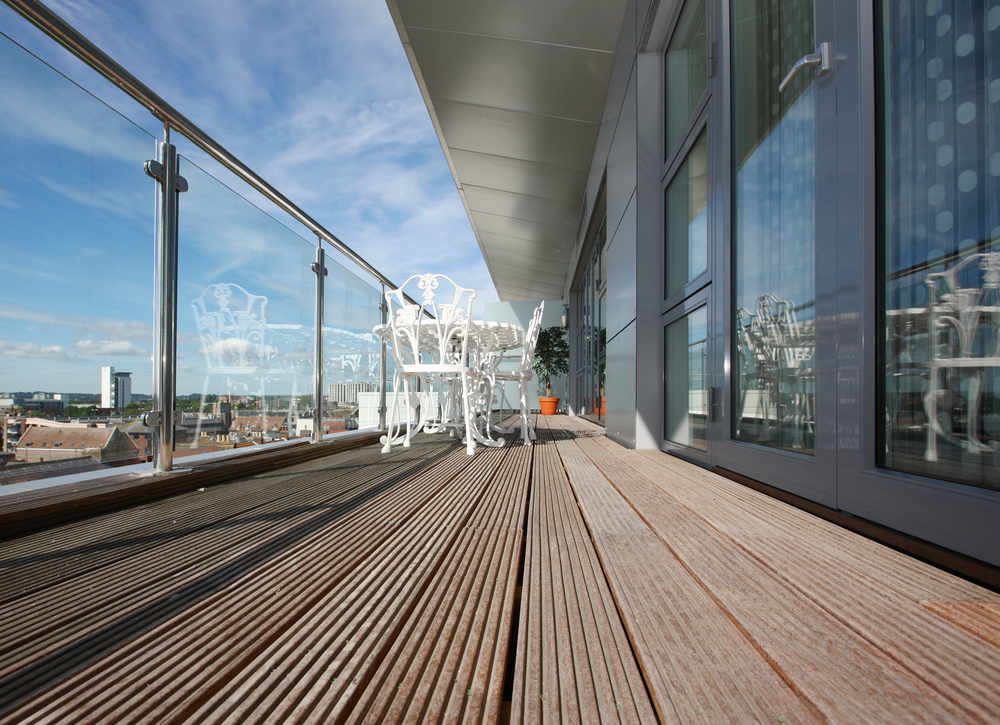
Living in Southern California means enjoying outdoor spaces like decks and balconies year-round. However, ensuring the safety of these structures is crucial, especially considering the risks associated with wear and tear, weather, and age. Regular inspections by qualified deck inspectors in California are mandatory to prevent accidents and ensure structural integrity. If your deck is found unsafe during such an inspection, prompt action is essential to address the issues. Let’s explore the steps you should take if your deck is found to be unsafe by qualified deck inspectors in California. Understanding the Role of Qualified Deck Inspectors in California Qualified deck inspectors in California play a vital role in assessing the condition of decks and identifying potential safety hazards. These professionals are trained and certified to conduct thorough inspections, considering structural integrity, deterioration, and compliance with building codes. Their expertise ensures decks are safe and compliant with regulatory requirements, ultimately helping to prevent accidents and liabilities. Immediate Steps to Take if Your Deck is Found Unsafe Obtain a Detailed Inspection Report The first step is to obtain a detailed inspection report from the qualified deck inspector. This report will outline the deficiencies and safety hazards identified during the inspection. This provides valuable insights into the condition of your deck. Assess the Severity of the Issues Review the inspection report carefully to understand the severity of the issues identified. Some problems may require immediate attention, while others may be less urgent. However, they must be addressed promptly to prevent further deterioration. Engage Qualified Contractors Once you understand the issues identified in the inspection report, you must engage qualified contractors to address them. Look for contractors with experience in deck repairs and renovations who can provide solutions tailored to your needs. Secure Necessary Permits Before commencing any repair work on your deck, obtain the necessary permits from the local building authority. Compliance with building codes and regulations is essential to ensure the repairs are safe and legal. Implement Recommended Remediation Measures Work closely with your chosen contractors to implement the recommended remediation measures outlined in the inspection report. This may involve structural repairs, replacement of deteriorated components, or other measures necessary to bring your deck up to code and ensure its safety. Schedule Follow-Up Inspections Once the remediation work is complete, schedule follow-up inspections with qualified deck inspectors to verify that the necessary repairs have been successful. These follow-up inspections ensure your deck is safe and compliant with regulatory requirements. In conclusion, if qualified deck inspectors in California find your deck unsafe, it’s essential to take immediate action to address the issues identified. By obtaining a detailed inspection report, assessing the severity of the problems, engaging qualified contractors, securing necessary permits, implementing recommended remediation measures, and scheduling follow-up inspections, you can ensure the safety and integrity of your deck for years to come. Compliance with regulatory requirements protects occupants and minimizes the risk of accidents and liabilities associated with unsafe deck conditions. Click here to get in contact with Deck Inspectors of Southern California! Deck Inspectors for Southern California is happy to offer our services in Los Angeles, Orange County as well as San Diego and all Southern California surrounding areas like: Glendale, Pasadena, Burbank, Santa Monica, Anaheim, Temecula, Vista, Escondido, Carlsbad, and El Cajon
Common Deck Issues Found During SB 326 Inspections and How to Address Them
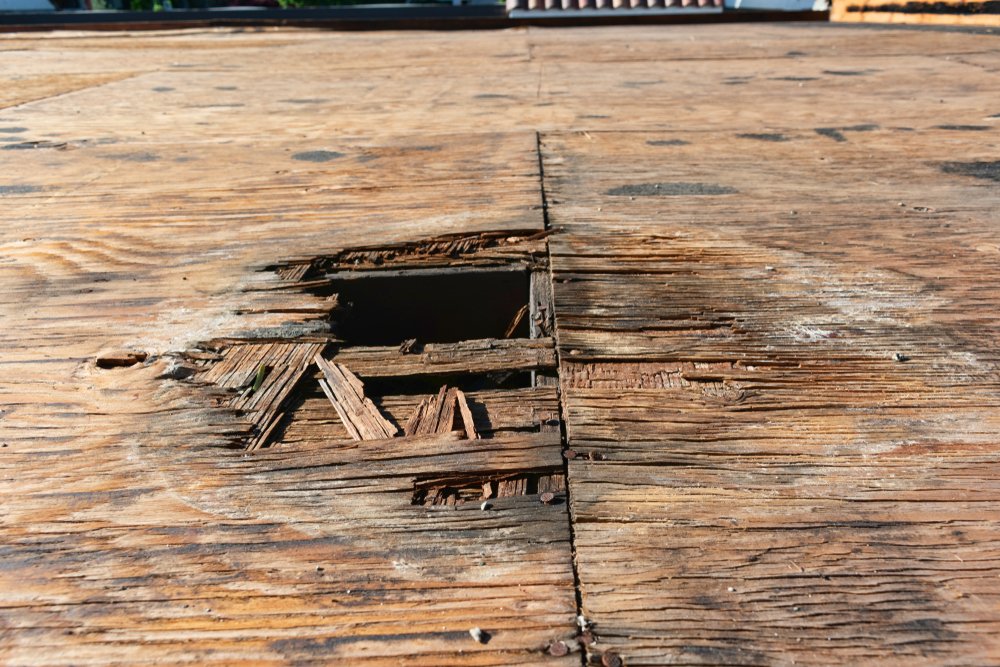
Deck inspections are critical for ensuring the safety and longevity of outdoor living spaces in Southern California. From structural weaknesses to deteriorating materials, inspectors often encounter various issues that require attention. Understanding these common issues and how to address them is essential for maintaining a safe and functional deck. In light of SB 326 regulations, being vigilant about deck maintenance and safety is more important than ever. Identifying Common Deck Issues with SB 326 Structural Weaknesses Structural weaknesses are among the most prevalent issues found during deck inspections. Over time, exposure to the elements, improper construction, and lack of maintenance can compromise the deck’s support system. Inspectors often encounter rotting or deteriorating wood, corroded fasteners, and inadequate connections between components. These issues can weaken the deck’s structural stability, increasing the risk of collapses or accidents. Moisture Damage Moisture damage is another common problem observed during deck inspections, particularly in regions with high humidity or frequent rainfall. Water intrusion can lead to rot, decay, mold growth, and deterioration of wood. This will compromise the structural integrity and appearance of the deck. Inspectors often identify signs of moisture damage, such as soft or spongy areas, discoloration, or mold growth on decking boards, support structures, and railings. Addressing Common Deck Issues for SB 326 Structural Repairs Addressing structural weaknesses requires thoroughly assessing the deck’s support system and components. Depending on the severity of the damage, repairs may involve reinforcing or replacing deteriorated wood, installing additional support beams or joists, and upgrading fasteners or connectors to improve stability. It’s essential to enlist the services of qualified contractors or structural engineers to ensure that repairs are conducted according to industry standards and local building codes. Moisture Management Managing moisture is crucial for preventing further damage and preserving the longevity of your deck. Start by addressing any sources of water intrusion, such as clogged gutters, inadequate drainage, or damaged flashing. Improve ventilation to promote airflow and reduce humidity levels, especially in enclosed or shaded areas where moisture accumulates. Consider applying a waterproof sealant or stain to protect the wood from moisture penetration and UV damage. Regular maintenance is essential for preserving the integrity of your deck. SB 326 Conclusion Regular deck inspections are essential for identifying and addressing common issues that can compromise the safety and longevity of outdoor living spaces. By proactively addressing structural weaknesses, moisture damage, and other maintenance issues, deck owners can ensure the safety of occupants and protect their investment in their outdoor environment. With the implementation of SB 326 regulations, which require inspections for all residential structures, it’s more important than ever for deck owners to prioritize maintenance and safety. By staying vigilant and addressing issues promptly, deck owners can enjoy their outdoor living spaces with peace of mind for years to come. Get in contact with Deck Inspectors of Southern California today by clicking here! Deck Inspectors for Southern California is happy to offer our services in Los Angeles, Orange County as well as San Diego and all Southern California surrounding areas like: Glendale, Pasadena, Burbank, Santa Monica, Anaheim, Temecula, Vista, Escondido, Carlsbad, and El Cajon
